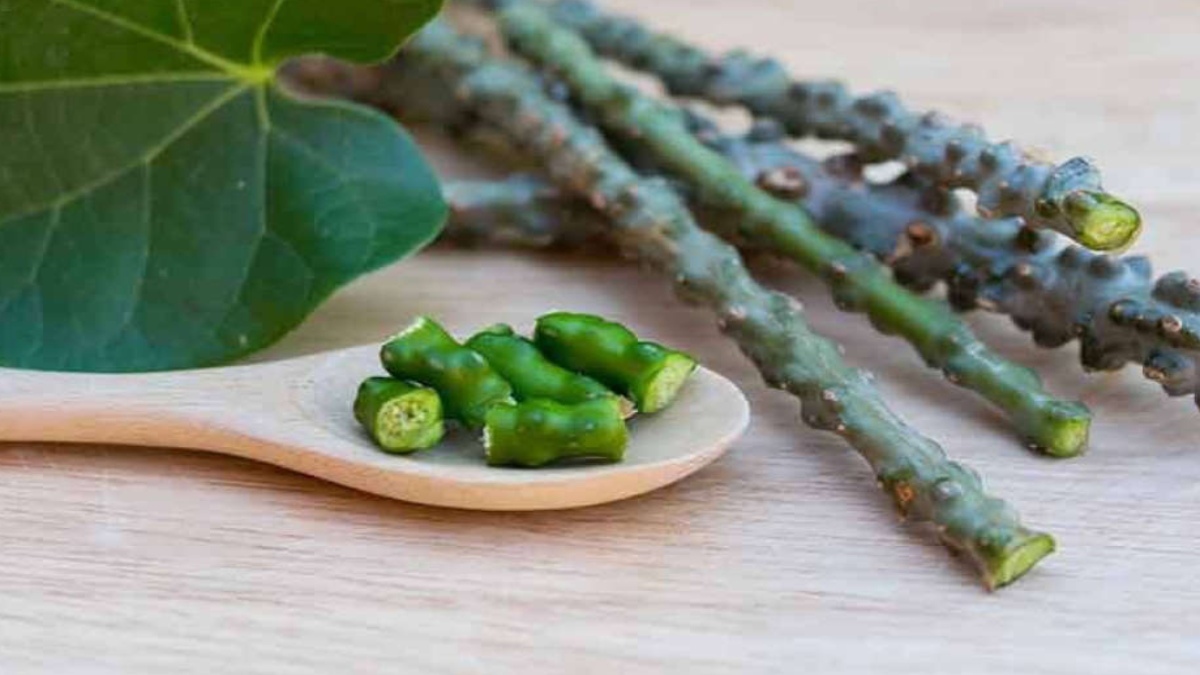
With the rampant spread of the deadly disease, it becomes very important to invest in building your immunity during this time. Dr Lokesh Kumar Raturi, senior Ayurveda expert with the Art of Living’s Sri Sri Tattva shares simple practicable ways based on the ancient science of Ayurvedic healing to keep your immune system fighting fit as we combat various hitherto unseen strains of airborne viruses like the Covid-19.




Ramp up your immune system and help stave off the dreaded viral infections by integrating the use of these powerful herbs prescribed in Ayurveda that can help build your all round immunity.
AMRUT OR GILOY
Amrut pacifies all three doshas (bio-energies in the body and is therefore safe for everyone to consume. An important Ayurvedic concept is the Doshas that represent the five great elements in nature that makeup matter. How these doshas manifest in an individual determines his/ her unique physiological and mental constitution called Prakruti.
Giloy is one of the most powerful immunomodulators that regulate the immune system, which is why it is immensely useful in treating autoimmune conditions. The root is known for its anti-stress, anti-leprotic and anti-malarial activities. It is known to be a rich source of trace elements (zinc and copper) that act as antioxidants and protect cells from the damaging effects of free radicals.
One must continue ingesting the herb over a long period to see cumulative effects.
BASIL OR TULSI
One of India’s most virtuous herbs has leapfrogged from adorning front yards and delicate china cups to becoming one of the most sought after herbs—and for good reason. Known as the queen of herbs and the elixir of life, Tulsi is a useful adaptogen. Adaptogens are agents that help the body cope with stress, enhance physical and mental health, and promote longevity.
It is no surprise that Tulsi also features as one of the main herbs that can help you build immunity. Tulsi also has a unique combination of antioxidant, anti-inflammatory, anti-microbial and other actions that combine to help the body and mind adapt and cope with a wide range of physical, emotional, chemical and infectious stresses. It works as an anti-inflammatory herb and promotes detoxification. It can modulate the immune system and protect the liver from environmental toxins.
AMLA
In conversations around immunity-building foods today, the home-grown amla is now a major contender. The Indian Gooseberry is a superfood that comes packed with a world of nutrients.
It has high levels of Vitamin C, B-complex and carotene, along with macronutrients such as protein and carbohydrates. It is also rich in calcium, iron, phosphorus and sodium. It is a powerful antioxidant that is effective in reducing cell damage and the free radicals that can cause diseases in the body. Also, Amla doesn’t lose its properties when processed, pulped or dried as much as other fruits do. Consuming an amla a day in any form is one of the best things you could do for your immunity. A single tiny Amla is equivalent in vitamin C content to two oranges.
TURMERIC AND PEPPER
One of the reasons why turmeric is so freely sprinkled in all Indian dishes is because it is a nutritional powerhouse and a gift for our body’s immunity. Curcumin, present in turmeric, has anti-inflammatory, antiseptic and antibacterial properties.
It’s best to combine turmeric with a pinch of pepper, as curcumin shows increased bioavailability in the presence of piperine, which is one of the active compounds of black pepper.
FOODS FOR IMMUNITY
You can have cheese or yoghurt for stronger gut immunity, along with black pepper, broccoli, sprouts, citrus fruits for better immunity. Avoid foods that are cold, sweet or heavily fried.
As more cases of Covid-19 come to light, it is quite natural to feel anxious about the quickly spreading virus across the globe and in India. Governments and the health ministries are stepping up to the challenge and have already come up with various steps to increase effectiveness against viral infections. The basic preventive measures include:
• You are encouraged to wash your hands often (your hand is the most common carrier of the virus potentially because of common contact)
• Don’t touch your face again and again (eyes, nose & mouth specifically)
• Maintain social distance (lest you come directly in contact with someone who is displaying the symptoms)
• Practice respiratory hygiene
• Most importantly, get yourself tested if you are experiencing any of the symptoms or you have doubts.
Stay hydrated
• Symptoms include dry cough, cold, fever and shortness of breath















